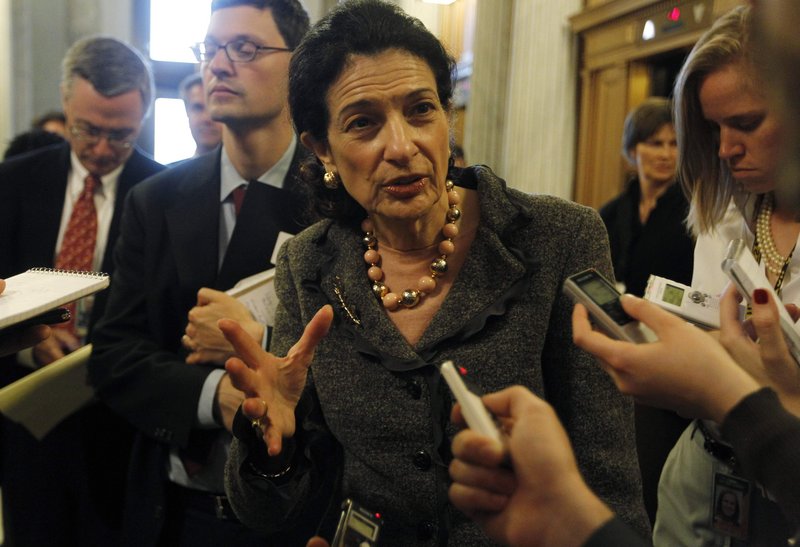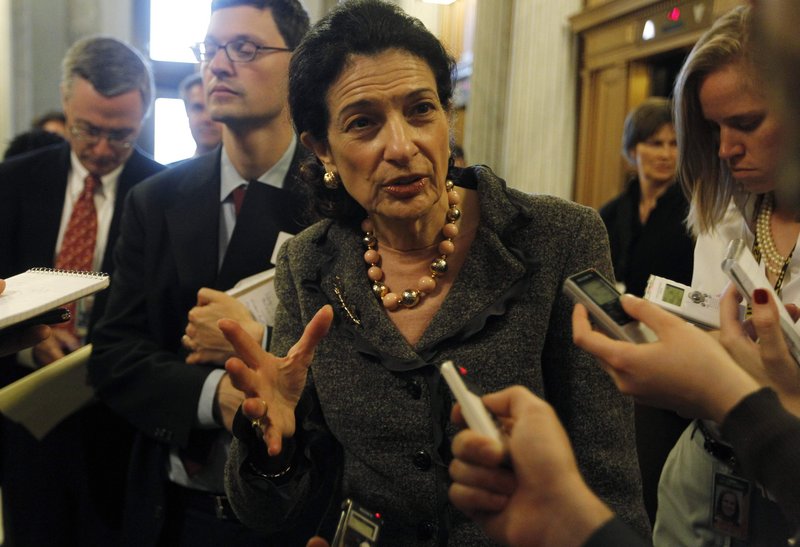WASHINGTON – Republicans voted unanimously Monday to block an effort to overhaul financial regulations from reaching the Senate floor, pledging to hold out for significant changes to the bill even as they acknowledged the political risk of appearing to obstruct a popular cause.
The 57-41 vote, short of the 60 needed to begin debate, was expected, although Democrats did suffer an unanticipated defection when Sen. Ben Nelson of Nebraska joined Republicans and voted no. Senate Majority Leader Harry Reid, D-Nev., was prepared to call further votes today, Wednesday and beyond.
“We need to keep the pressure on to get a deal as quickly as possible,” Reid spokesman Jim Manley said.
About two-thirds of Americans support stricter regulations on the way banks and other financial institutions conduct their business, according to a Washington Post-ABC News poll. Majorities also back two main components of the pending Senate bill: greater federal oversight of consumer loans, and a proposed fund paid for by the financial industry that would go toward dismantling failed firms that put the broader economy at risk.
Given the public support for tougher Wall Street rules, the unanimity Republicans demonstrated Monday may not endure.
GOP negotiators said their goal remains a final bill that includes enough changes that it can win broad support from both parties. But Democrats are looking to limit their concessions and say they will probably win a few conversions among Republicans who have expressed support for the overwhelming majority of the bill in its current form.
Democrats say they believe about six GOP senators are open to switching their votes. They include Olympia Snowe and Susan Collins of Maine, Scott Brown of Massachusetts, and Charles Grassley of Iowa.
Snowe and Collins both said last week that they support negotiating a bipartisan bill.
Grassley, a conservative facing re-election in November, surprised colleagues recently by voting to support strict new rules for derivatives, one of the fundamental parts of the bill.
The 1,400-page bill would also create an agency to protect consumers against abusive lending practices; establish a council of regulators to monitor potential risks to the financial system; and give the government authority to shut down large, failing firms before they collapse.
Snowe has outlined two main concerns about the bill in its current form: a $50 billion fund to be used in liquidating distressed financial firms, and restrictions on community banks that engage in certain types of small-business lending.
“There are some concerns about the legislation, and I want to make sure they’re addressed,” she said. But she added: “We’re not going to have unanimous support for this legislation.”
Brown said he voted “no” Monday to allow Senate banking committee Chairman Christopher Dodd, D-Conn., and Sen. Richard Shelby of Alabama, the ranking Republican on the panel, more time to rewrite several major provisions.
Nelson said he opposed starting debate on the bill because of consumer-protection provisions that could harm “Main Street businesses” back home, including dentists, whose patients often borrow to finance major procedures that their insurance doesn’t cover, and auto dealers.
But after meeting with Nelson, Dodd said, “Dentists and auto dealers did not come up.”
Shelby aides declined to talk in depth Monday about how a GOP alternative bill would differ from the legislation sponsored by Dodd. But they said it almost certainly would include language to overhaul the government-sponsored entities Fannie Mae and Freddie Mac.
Copy the Story Link
Send questions/comments to the editors.




Success. Please wait for the page to reload. If the page does not reload within 5 seconds, please refresh the page.
Enter your email and password to access comments.
Hi, to comment on stories you must . This profile is in addition to your subscription and website login.
Already have a commenting profile? .
Invalid username/password.
Please check your email to confirm and complete your registration.
Only subscribers are eligible to post comments. Please subscribe or login first for digital access. Here’s why.
Use the form below to reset your password. When you've submitted your account email, we will send an email with a reset code.